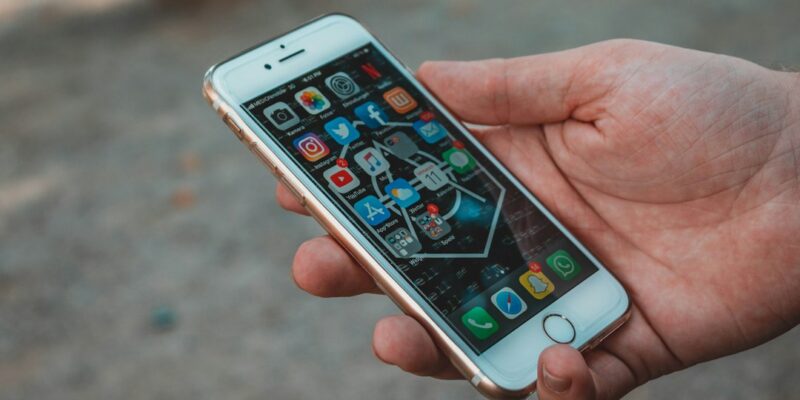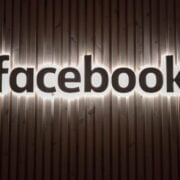
Surviving the Social Media Apocalypse: Tips for Staying Zen During Facebook and Instagram Outages
In today’s digital age, social media has become an integral part of our lives. It has revolutionized the way we connect with others, share information, and consume content. However, with the increasing reliance on social media, there has been a growing concern about its addictive nature and the impact it has on our mental health. Recent social media outages have shed light on just how dependent we have become on these platforms and the toll it takes on our well-being.
Over the past few years, there have been several instances where major social media platforms like Facebook, Instagram, and Twitter experienced outages, leaving millions of users unable to access their accounts. These outages caused widespread panic and frustration among users who rely heavily on these platforms for communication, entertainment, and validation. People took to other platforms like Twitter to express their frustration and anxiety, highlighting just how deeply ingrained social media has become in our daily lives.
The Impact of Social Media Outages on Our Lives
During social media outages, people often experience a range of emotions including frustration, anxiety, and even withdrawal symptoms. This highlights the addictive nature of these platforms and the extent to which they have become a part of our daily routines. Many individuals reported feeling lost without access to their social media accounts, as if they were missing out on important updates or events happening in their friends’ lives.
Moreover, social media addiction has been linked to various mental health issues such as depression, anxiety, and low self-esteem. When people are unable to access their social media accounts during an outage, they may experience heightened feelings of loneliness and isolation. This can further exacerbate existing mental health issues and lead to a decline in overall well-being.
The Psychology of Social Media Addiction
The addictive nature of social media can be attributed to the way it affects our brain chemistry. When we receive likes, comments, or shares on our posts, our brain releases dopamine, a neurotransmitter associated with pleasure and reward. This creates a sense of validation and satisfaction, which encourages us to seek more engagement on social media.
Additionally, social media platforms are designed to be highly engaging and addictive. Features like infinite scrolling, push notifications, and personalized content algorithms are all designed to keep users hooked and encourage them to spend more time on the platform. This constant stimulation and instant gratification make it difficult for users to disconnect and break free from the cycle of social media addiction.
The Importance of Disconnecting from Social Media
| Metrics | Importance of Disconnecting from Social Media |
|---|---|
| Increased Productivity | Disconnecting from social media can help you focus on your work and increase productivity. |
| Better Sleep | Using social media before bed can disrupt your sleep patterns. Disconnecting can help you get a better night’s sleep. |
| Improved Mental Health | Studies have shown that excessive use of social media can lead to anxiety, depression, and other mental health issues. Disconnecting can help improve your mental health. |
| Stronger Relationships | Disconnecting from social media can help you focus on building stronger relationships with the people around you. |
| Reduced Stress | Constantly checking social media can lead to stress and overwhelm. Disconnecting can help reduce stress levels. |
Taking a break from social media can have numerous benefits for our mental health and overall well-being. Disconnecting from social media allows us to regain control over our time and attention, reducing feelings of overwhelm and anxiety. It gives us the opportunity to focus on other aspects of our lives that may have been neglected due to excessive social media use.
Moreover, disconnecting from social media promotes self-care and mental health. It allows us to prioritize our own needs and engage in activities that bring us joy and fulfillment. By stepping away from the constant comparison and validation-seeking that often comes with social media, we can cultivate a healthier relationship with ourselves and boost our self-esteem.
Alternative Ways to Stay Connected with Friends and Family
While social media has become the go-to platform for staying connected with friends and family, there are alternative ways to maintain these relationships without relying solely on digital interactions. Face-to-face interactions are essential for building deep connections and fostering meaningful relationships. Meeting up with friends for coffee or organizing family gatherings can provide a much-needed break from the virtual world and allow for genuine human connection.
Additionally, phone calls, text messages, and video chats can be effective ways to stay connected with loved ones without the need for social media. These forms of communication offer a more personal touch and allow for real-time conversations that can help bridge the gap created by social media outages.
The Benefits of a Social Media Detox
A social media detox involves taking a break from all social media platforms for a certain period of time. This intentional disconnection can have numerous benefits for our mental health and overall well-being. By removing the constant distractions and comparisons that come with social media, we can experience increased focus, productivity, and creativity.
A social media detox also allows us to reclaim our time and attention. Instead of mindlessly scrolling through feeds and consuming endless content, we can redirect our energy towards activities that bring us joy and fulfillment. This can include hobbies, exercise, spending time in nature, or engaging in meaningful conversations with loved ones.
Furthermore, a social media detox can help improve our sleep quality. The blue light emitted by screens can disrupt our sleep patterns and make it difficult to fall asleep at night. By disconnecting from social media before bedtime, we can create a healthier sleep routine and improve our overall sleep hygiene.
Mindfulness and Meditation Techniques to Stay Calm
Mindfulness and meditation techniques can be powerful tools to help us stay calm and centered in the midst of social media chaos. Mindfulness involves being fully present in the moment and non-judgmentally observing our thoughts and emotions. By practicing mindfulness, we can become more aware of our social media habits and the impact they have on our mental well-being.
Meditation, on the other hand, involves focusing our attention on a specific object or activity, such as our breath or a mantra. This practice helps calm the mind, reduce stress, and increase self-awareness. By incorporating meditation into our daily routine, we can develop a greater sense of inner peace and resilience when faced with the pressures of social media.
How to Manage FOMO (Fear of Missing Out)
FOMO, or the fear of missing out, is a common phenomenon experienced by many social media users. It is the fear that we are missing out on exciting events, experiences, or opportunities that others are sharing on social media. FOMO can lead to feelings of inadequacy, anxiety, and a constant need to be connected.
To manage FOMO, it is important to cultivate a sense of gratitude and contentment in our own lives. By focusing on what we have rather than what we lack, we can shift our mindset from one of scarcity to one of abundance. Additionally, setting boundaries and limiting our social media use can help reduce the feelings of FOMO and allow us to be more present in our own lives.
The Role of Social Media Companies in Our Lives
Social media companies have a responsibility to promote healthy social media use and prioritize the well-being of their users. This includes implementing features that encourage mindful usage, such as time limits and activity trackers. It also involves being transparent about the potential negative effects of excessive social media use and providing resources for users to seek help if needed.
Furthermore, there is a need for regulation and accountability when it comes to social media companies. Governments and regulatory bodies should work together to establish guidelines and standards for responsible social media use. This can include measures to protect user privacy, combat online harassment, and promote digital well-being.
Finding Balance in the Age of Social Media
In conclusion, social media has become an integral part of our lives, but it is important to recognize its addictive nature and the impact it can have on our mental health. Social media outages serve as a reminder of just how dependent we have become on these platforms and the toll it takes on our well-being.
Finding balance in the age of social media requires intentional effort and self-awareness. Taking breaks from social media, practicing mindfulness and meditation, and prioritizing face-to-face interactions are all essential steps towards cultivating a healthier relationship with these platforms.
Ultimately, it is up to us as individuals to prioritize our mental health and well-being over the constant need for validation and connection that social media often brings. By finding a balance between the digital world and the real world, we can lead more fulfilling lives and foster deeper connections with ourselves and others.
FAQs
What happened to Facebook and Instagram?
On March 19, 2021, Facebook and Instagram experienced a global outage that lasted for several hours. Users were unable to access their accounts, post updates, or use the platforms’ messaging features.
Why did Facebook and Instagram go down?
The exact cause of the outage is still unknown, but Facebook has stated that it was not the result of a cyberattack or any other malicious activity.
How long was Facebook and Instagram down?
The outage lasted for several hours, with some users reporting that they were unable to access the platforms for up to six hours.
Are Facebook and Instagram back up?
Yes, both platforms are now back up and running. Facebook has apologized for the outage and stated that it is working to prevent similar incidents from happening in the future.
What should I do if Facebook or Instagram goes down again?
If Facebook or Instagram goes down again, the best thing to do is to stay calm and wait for the platforms to come back online. You can also check social media and news websites for updates on the outage.


















